Friday, November 13, 2020
Thursday, November 12, 2020
Wednesday, November 11, 2020
Advocacy for predentals and rising D1s: A guide to taking action
Sonali Lallu and Hilary Wong have been committed to ASDA and learning about their future careers throughout their undergrad studies. Both were introduced to the organization through their district’s programming, served on their district’s predental committees and eventually earned positions on national ASDA’s Predental Advisory Committee. In addition to serving at the national level as predental consultant (Lallu currently holds the position; Wong served during the 2018-19 term), both students are passionate about advocating on behalf of the profession. Here, they discuss how predentals and rising D1s can get involved and why advocacy is important to students at all levels.
How would you describe advocacy for those who are becoming familiar with it?
When it comes to advocacy, it can be difficult to know where to begin. Whether it’s learning about some of the key issues, lobbying or helping overall, it can be overwhelming, especially for predental students and rising D1s. We often hear about the topic of advocacy and some of the issues we have within our profession, but it can be challenging to know what exactly advocacy is and how we can enter the chat.
Advocacy is defined as an activity by an individual or group that aims to gain support for a particular cause. Since the birth of the organization, advocacy has been at the core of ASDA’s mission, and it continues to advance its mission today: protecting and advancing “the rights, interests, and welfare of dental students.”
Advocacy efforts take place on national, district and local levels. Key issues that ASDA advocates for include student debt, dental licensure reform, barriers to care, amalgam, water fluoridation, midlevel providers and more.
Why is advocacy important?
Being aware of these legislative issues is important because they affect the dental profession at large. If they do not directly impact you, they will affect someone you know. As future health care providers, we are always seeking the best quality of care to our patients. Current legislation does not necessarily allow this to happen. Lawmakers do not necessarily have the background knowledge to make important decisions about the dental profession, so it is crucial for us to use our voices to share our expertise, our knowledge and our experiences.
What can predental students and rising D1s do to take action?
Advocacy starts at a local level. This is vital to ensure we can make advancements within the state and federal levels. The best way to get involved is to become informed! To start, you can:
- Read ASDA’s Advocacy Brief e-newsletter, watch the dental legislative videos and sign up for ASDA Action alerts.
- Read Contour, ASDA’s premier magazine where dental students address interesting issues ranging from technology in dentistry, public health, practice ownership and more.
- Attend ASDA webinars, which cover topics such as licensure reform, midlevel providers and more.
Taking it a step further, you can begin to get engaged by taking part in advocacy through your school chapter or your district.
- Follow your chapter and district social media accounts for updates on local advocacy initiatives. For instance, this past June, ASDA District 3 launched a podcast episode focused on the impact of COVID-19 on insurance and licensure reforms and systemic racism in the dental profession.
- Participate in Advocacy Month events this month. Consider serving as a legislative liaison. Network with lawmakers at your chapter.
- Attend or organize a state lobby day. Share your advocacy efforts on social media using the #ASDAadvocacy hashtag.
- Have meaningful conversations with your district or chapter advocacy leaders. Being an advocate is an ongoing process, and there are people who want to support you. Your district and chapter advocacy leaders are usually experienced on many topics and would love to talk in-depth about current issues.
Nationally, consider participating in ADA Dentist and Student Lobby Day, once this opportunity is available again. Attending lobby day is an amazing opportunity to network directly with our government’s leaders. You will be able to explain to them why an issue is important to the dental profession and why they should take a specific stance during the lawmaking process.
Being an advocate is a lifelong journey. We hope this article provided some tangible action steps to help you get started.
~Sonali Lallu, University of Central Florida ’19, and Hilary Wong, Pennsylvania ’24
Tuesday, November 10, 2020
Monday, November 9, 2020
The power of rhetoric of advocacy
Words have the power to invoke a feeling, relive a memory and inspire change. In advocacy, the rhetoric we choose can make or break the conversations you’re having. To lobby is to converse with people in power and persuade them to enact change. Using the aspects of rhetoric can enhance our advocacy and lobby efforts.
Three modes of rhetoric
Aristotle defined rhetoric as “the ability to see what is possibly persuasive in every given case.” The three modes of rhetoric are ethos, logos and pathos. Ethos is the ethical appeal and plays to the speaker’s credibility. You can enhance your ethos by using terms your audience will understand. Logos uses reasoning to convince your audience.
In preparing to meet with legislators, dental students should review statistics on the topics they will discuss. Pathos uses the audience’s emotions to persuade them, which can be accomplished through personal stories. We can use all three aspects of rhetoric to advocate effectively and speak with legislators about issues affecting dental students.
Not just a ‘New York state of mind’
The first time I lobbied was with the New York State Dental Association (NYSDA) and ASDA District 2 dental students in Albany, New York. The dentists and dental students reviewed the bills we were lobbying before meeting with legislators. We received tips on how to speak with legislators: understand what you are lobbying for, enter meetings with confidence, be friendly and share your gratitude for the legislator’s time.
Also, get comfortable getting personal. When you have limited time with your legislators, move them with personal stories, not numbers. This means sharing stories of how these bills affect you, your profession and your patients. Stay away from statistics and medical jargon. Appeal to them with terms they will understand. In addition, keep party lines in mind. When speaking with Republicans, appeal to a bill’s fiscal or small business advantages. When speaking with Democrats, speak to reducing barriers to care and improving access.
Read the rest of the article in the November/December issue of Contour.
~Sydney Shapiro, Columbia ’21, ASDA President
Friday, November 6, 2020
Thursday, November 5, 2020
Wednesday, November 4, 2020
A guide to #ASDAVLC, as told by Moira Rose of ‘Schitt’s Creek’
With ASDA’s first-ever Virtual Leadership Conference (VLC) quickly approaching, it’s understandable that you might wonder, “How do I prepare?” Let “Schitt’s Creek” character Moira Rose, star of fictional TV soap opera “Sunrise Bay,” provide you with tips to make the most out of your VLC experience.
Review the schedule. Check out the schedule to decide ahead of time which sessions you want to attend. Take a look at the colored track icons that provide details on which programming track (career planning, leadership fundamentals, personal development and wellness, advocacy, cutting-edge and clinical) the session is associated with.

Eliminate distractions. It may be tempting to multitask, but it’s best to dedicate your time to the sessions you want to attend. Put your phone on silent, turn off email notifications and limit distractions in your space, so you are able to pay attention and get the most out of the conference. In addition, prepare your space with anything you may need such as your laptop charger, earbuds, coffee and water, snacks, etc.

Get comfortable. While a virtual conference is less formal than an in-person event, it’s important to dress appropriately. You’re still making an impression, and you want to make sure it’s a good one, especially when networking with vendors and other attendees. That being said, if your camera isn’t on, feel free to get comfortable.

Participate. Network, ask questions and build relationships with other attendees and speakers by using the Q&A and chat function within the platform. In addition, don’t miss the Sponsor Showcase to learn about products, tools, business services and career opportunities, and to schedule your one-on-one virtual appointments.
Be social. Check out ASDA’s Instagram account (@dentalstudents) for important event reminders, and use the #ASDAVLC to connect with other participants throughout the conference.

See what you missed. If you didn’t catch all the sessions, don’t worry. You can still fold it in to your schedule by watching what you missed on demand. Content will be available for up to a year using your existing conference login credentials.

Have fun! Last but not least, have fun! There are a variety of one-time live networking events that are being held throughout VLC that you will not want to miss. From a cooking demo with celebrity chef Matt Basile to glow-in-the-dark yoga and “You Can’t Handle the Tooth!” trivia, it’s important to take a break to relax and enjoy your time at VLC!

Tuesday, November 3, 2020
Resources to help jumpstart your way to professional practice
Many dental students try to imagine what life will be like after graduation. But no one imagines starting their career during a pandemic.
Dentistry is no stranger to rapidly adapting to safety needs. The profession has a long history of employing protocols and protective equipment to safely provide care in their work environments. For instance, before the AIDS epidemic, many dentists practiced without gloves, masks or eye protection. The American Dental Association (ADA) provides insight on how to navigate the issues dentists face during this unprecedented time.
Being safe
Find expert guidance on how to minimize the risk of COVID-19 transmission with the ADA’s COVID-19 safety and clinical resources. In addition, the ADA answers members’ frequently asked questions on the COVID-19 FAQ page. Here you can learn about federal student loan matters, employer and employee concerns, financial and dental benefit considerations, office protection, patient communication and more. As the pandemic evolves, ADA updates these pages to provide member dentists with credible information aimed at protecting both patients and dental teams.
Staying well
Maintaining your physical and mental wellness and a work-life balance is important for any health care professional. Coping with your own emotions and stress is equally as important. By taking care of yourself, you are sustaining your ability to care for others. To help dentists minimize the effects of stress, the ADA’s recent webinar, “Emotional Impact: Dealing Constructively with Stress in the Midst of COVID-19,” features a panel of three dentists from the ADA Dentist Wellness Advisory Committee.
The panelists address the emotions surrounding the most common fears and stressors that dentists have reported experiencing before, during and after reopening their practices. Learn more about coping with stress by visiting ADA.org/Wellness for COVID-19 mental health resources.
Getting informed
Stay up to date with how the pandemic is affecting dentists and the dental industry with new episodes from season three of the ADA’s practice podcast Beyond the Mouth. Released weekly beginning Oct. 21, guests talk about non-clinical challenges dentists face every day. Additionally, Beyond the Mouth features episodes on leadership, practice management, burnout, wellness and more.
Additional resources
Further, the ADA’s resources — including the COVID-19 FAQ and clinical safety pages, on-demand webinars, practice podcast episodes and other downloadable resources — are valuable tools to help with the day-to-day issues facing seasoned dentists and dental students alike. Whether you are just starting out as a new dentist or you are starting a new dental practice after years of honing your clinical skills, the ADA has resources to help you with the transition to the next phase of your career and to make informed career decisions.
Despite the current obstacles or frustrations of being in dental school or graduating during a pandemic, remind yourself that you are fulfilling a noble calling — providing people with dental care and advancing their oral health.
~ADA Center for Professional Success
This blog post was sponsored by the ADA Center for Professional Success.
Disclaimer: This article is not intended to provide legal advice. Dental practices that require legal advice should consult an attorney licensed to practice in their jurisdictions.
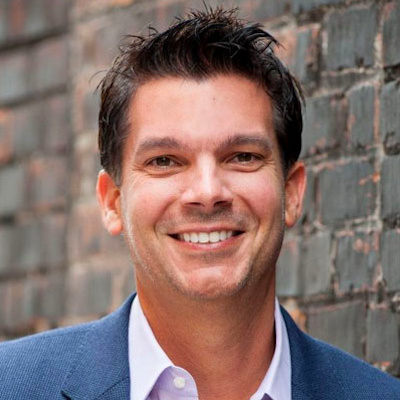 Spurred by the memories of past Veterans Days and the dentistry he and his team have donated to veterans, Dr. David Rice, clinical editor for DrBicuspid.com, discusses how giving back to the community has brought his team closer together and even boosted the bottom line of his business.
Spurred by the memories of past Veterans Days and the dentistry he and his team have donated to veterans, Dr. David Rice, clinical editor for DrBicuspid.com, discusses how giving back to the community has brought his team closer together and even boosted the bottom line of his business. Whether it's a team member who has seen his or her hours cut or a dentist who is pursuing a passion outside of dentistry, Chris Panebianco is seeing more dental professionals examine the financial opportunities a side business can bring. He offers some money-themed thoughts on the subject as people continue to plan for what the new year might bring.
Whether it's a team member who has seen his or her hours cut or a dentist who is pursuing a passion outside of dentistry, Chris Panebianco is seeing more dental professionals examine the financial opportunities a side business can bring. He offers some money-themed thoughts on the subject as people continue to plan for what the new year might bring. About one-sixth of the counties in California have ordered healthcare workers, including dental professionals, to get vaccinated for influenza, according to information from county health departments.
About one-sixth of the counties in California have ordered healthcare workers, including dental professionals, to get vaccinated for influenza, according to information from county health departments.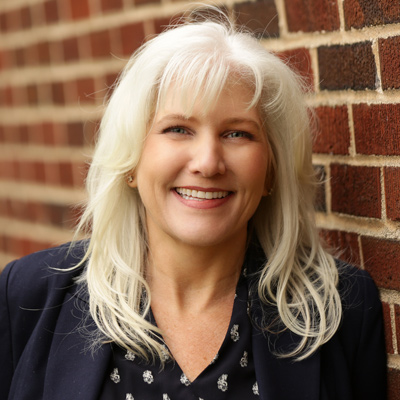 With the end of the year quickly approaching, now is the best time to start thinking about what reports you will need to measure your practice's financial success over the past 12 months. How do you run those reports using your Dentrix practice management software? Dayna Johnson, a certified Dentrix trainer and founder of Novonee.com, offers some ideas and advice.
With the end of the year quickly approaching, now is the best time to start thinking about what reports you will need to measure your practice's financial success over the past 12 months. How do you run those reports using your Dentrix practice management software? Dayna Johnson, a certified Dentrix trainer and founder of Novonee.com, offers some ideas and advice. Adding a common anti-tooth decay milk product to processed yogurt not only prevents enamel demineralization but also repairs lesions on the harder outer layer of teeth, according to a study published in the December issue of the Journal of Dentistry.
Adding a common anti-tooth decay milk product to processed yogurt not only prevents enamel demineralization but also repairs lesions on the harder outer layer of teeth, according to a study published in the December issue of the Journal of Dentistry. Your patient seemed happy when he or she left the operatory. However, after a few days, the person's attitude has changed and you're getting a phone call or seeing an unhappy post on social media. How can this be prevented? What can you do after it happens? Dr. Teresa Yang offers tips and advice.
Your patient seemed happy when he or she left the operatory. However, after a few days, the person's attitude has changed and you're getting a phone call or seeing an unhappy post on social media. How can this be prevented? What can you do after it happens? Dr. Teresa Yang offers tips and advice.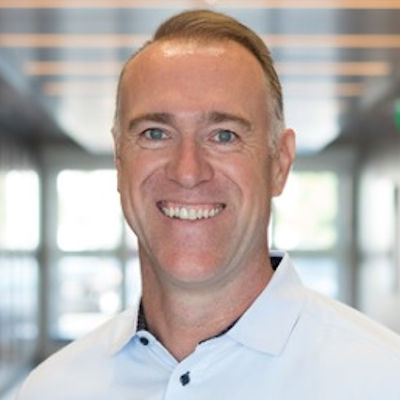 Now more than ever, it is important to submit complete and correct insurance claims, writes Steve Roberts. In this article, he provides seven common reasons why your dental practice's claims might be getting rejected and some steps you can take to expedite approval and payment.
Now more than ever, it is important to submit complete and correct insurance claims, writes Steve Roberts. In this article, he provides seven common reasons why your dental practice's claims might be getting rejected and some steps you can take to expedite approval and payment. As people in the U.S. mark Veterans Day, we ask dental practices what they know about the veterans who are part of their patient base. Is your dental practice doing enough to recognize them -- both as veterans and as your loyal customers?
As people in the U.S. mark Veterans Day, we ask dental practices what they know about the veterans who are part of their patient base. Is your dental practice doing enough to recognize them -- both as veterans and as your loyal customers? An oral surgeon diagnosed and treated a teen with a rare vascular tumor in her mouth after a dentist and periodontist improperly treated her for periodontitis for two years. Details of the case were published on November 6 in BMC Oral Health.
An oral surgeon diagnosed and treated a teen with a rare vascular tumor in her mouth after a dentist and periodontist improperly treated her for periodontitis for two years. Details of the case were published on November 6 in BMC Oral Health.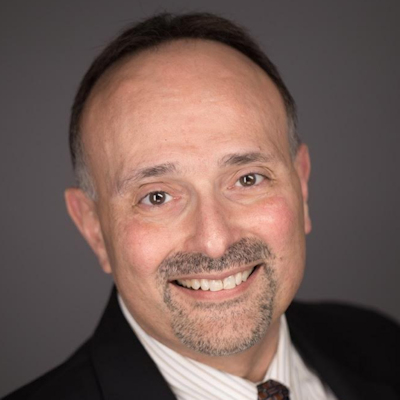 Codeine is often viewed as a good alternative for pain control for your patients, but what do you really need to know about it and what health risks should you keep in mind? Tom Viola, RPh, shares his thoughts on what you and your team need to know about codeine in this short podcast.
Codeine is often viewed as a good alternative for pain control for your patients, but what do you really need to know about it and what health risks should you keep in mind? Tom Viola, RPh, shares his thoughts on what you and your team need to know about codeine in this short podcast.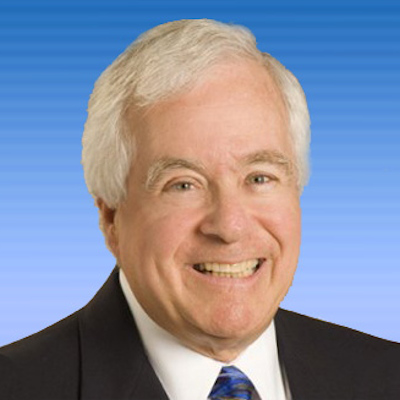 What happens when dentists who own a number of dental practices want to join forces and contribute those practices to a startup dental service organization (DSO) that they will own together? Bruce Bryen, CPA, CVA, details the many steps involved when dentists want to start their own DSO and they are contributing substantial assets in the form of noncash contributions, such as their own dental practices.
What happens when dentists who own a number of dental practices want to join forces and contribute those practices to a startup dental service organization (DSO) that they will own together? Bruce Bryen, CPA, CVA, details the many steps involved when dentists want to start their own DSO and they are contributing substantial assets in the form of noncash contributions, such as their own dental practices. In addition to oral lesions being an early sign of COVID-19, infection with the SARS-CoV-2 virus may trigger the late onset of secondary ulcers in patients, according to a letter to the editor published on November 1 in Oral Diseases.
In addition to oral lesions being an early sign of COVID-19, infection with the SARS-CoV-2 virus may trigger the late onset of secondary ulcers in patients, according to a letter to the editor published on November 1 in Oral Diseases.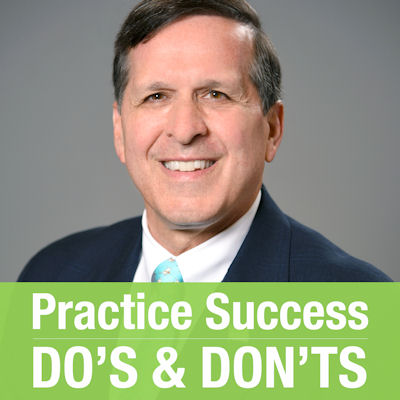 Creating a culture of ongoing education and information dissemination will build better teams -- and better teams build better practices. The challenge for practice leaders is that they're so busy with patient treatment that they often lack time for teaching, writes Dr. Roger P. Levin.
Creating a culture of ongoing education and information dissemination will build better teams -- and better teams build better practices. The challenge for practice leaders is that they're so busy with patient treatment that they often lack time for teaching, writes Dr. Roger P. Levin.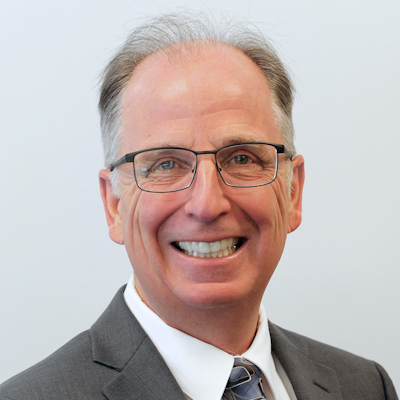 Despite feeling overwhelmed and emotionally exhausted after the dental shutdowns caused by COVID-19, dental professionals needed to press on. Is it possible to do this and still experience some semblance of positivity and joy? Dr. Robert Maguire believes the answer is yes, and he shares a few things he has done (and you can do as well) to stay positive and productive in the midst of this pandemic.
Despite feeling overwhelmed and emotionally exhausted after the dental shutdowns caused by COVID-19, dental professionals needed to press on. Is it possible to do this and still experience some semblance of positivity and joy? Dr. Robert Maguire believes the answer is yes, and he shares a few things he has done (and you can do as well) to stay positive and productive in the midst of this pandemic. Only seven dental hygienists who were working while COVID-19 was surging in Italy, including the hardest hit spot of Lombardy, tested positive for the novel coronavirus, according to an article published on October 31 in BMC Health Services Research.
Only seven dental hygienists who were working while COVID-19 was surging in Italy, including the hardest hit spot of Lombardy, tested positive for the novel coronavirus, according to an article published on October 31 in BMC Health Services Research.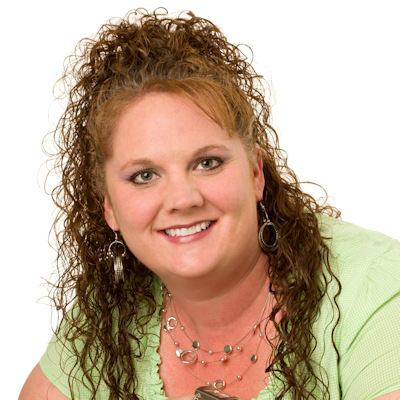 Knowing which dental insurance plans are benefiting or hurting your practice is important to the growth of your business in 2021. For those with Curve Hero practice management software, trainer Tracey Thompson offers some tips and advice on how to understand the various dental insurance options out there, as well as the pros and cons for your bottom line.
Knowing which dental insurance plans are benefiting or hurting your practice is important to the growth of your business in 2021. For those with Curve Hero practice management software, trainer Tracey Thompson offers some tips and advice on how to understand the various dental insurance options out there, as well as the pros and cons for your bottom line.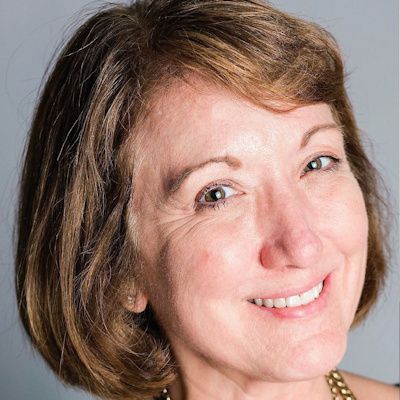 Laurie Owens says that the dictionary defines "hero" as "a person who is admired or idealized for courage, outstanding achievements, or noble qualities." There's certainly more to being a hero than just putting on a cape. It takes hard work and grit, but it's also something that Owens believes every dentist and team member can become.
Laurie Owens says that the dictionary defines "hero" as "a person who is admired or idealized for courage, outstanding achievements, or noble qualities." There's certainly more to being a hero than just putting on a cape. It takes hard work and grit, but it's also something that Owens believes every dentist and team member can become. Now that 99% of dental offices in the U.S are open following pandemic shutdowns, fewer practices are reporting "business as usual," according to the most recent data from the ADA's Health Policy Institute.
Now that 99% of dental offices in the U.S are open following pandemic shutdowns, fewer practices are reporting "business as usual," according to the most recent data from the ADA's Health Policy Institute. Dental practices often focus on ramping up their technology game, but what about using technology to boost the practice's communication habits as well? Dave McClintic discusses the benefits of two-way radios and how they may be even more valuable in the postpandemic practice.
Dental practices often focus on ramping up their technology game, but what about using technology to boost the practice's communication habits as well? Dave McClintic discusses the benefits of two-way radios and how they may be even more valuable in the postpandemic practice.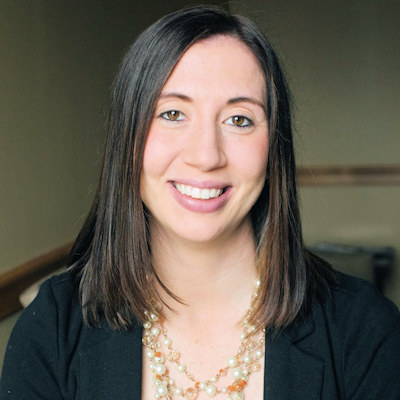 It's never a comfortable conversation when a patient asks about billing options. So how can the situation be eliminated altogether, taking stress off the entire team? Ashley Bond believes it's about setting up the right payment expectations for patients before the practice ever collects a penny from them.
It's never a comfortable conversation when a patient asks about billing options. So how can the situation be eliminated altogether, taking stress off the entire team? Ashley Bond believes it's about setting up the right payment expectations for patients before the practice ever collects a penny from them.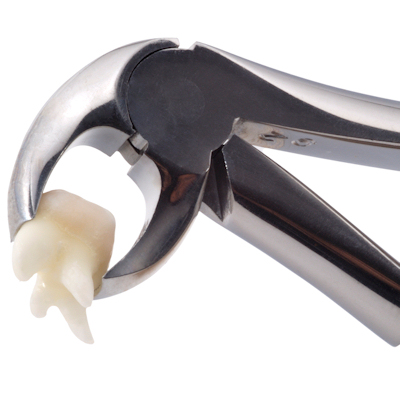 Imaging and early antibiotic intervention saved the life of an 18-year-old man in Kansas who was diagnosed with Lemierre syndrome, or the "forgotten disease," after wisdom teeth extraction, according to a case report published on October 20 in the Cureus Journal of Medical Science.
Imaging and early antibiotic intervention saved the life of an 18-year-old man in Kansas who was diagnosed with Lemierre syndrome, or the "forgotten disease," after wisdom teeth extraction, according to a case report published on October 20 in the Cureus Journal of Medical Science. The fight against the pandemic hinges on more than the efficacy of upcoming COVID-19 vaccines. The path to victory depends on how the public perceives the safety and effectiveness of the vaccines, according to a recent discussion by a panel of physicians and scientists.
The fight against the pandemic hinges on more than the efficacy of upcoming COVID-19 vaccines. The path to victory depends on how the public perceives the safety and effectiveness of the vaccines, according to a recent discussion by a panel of physicians and scientists.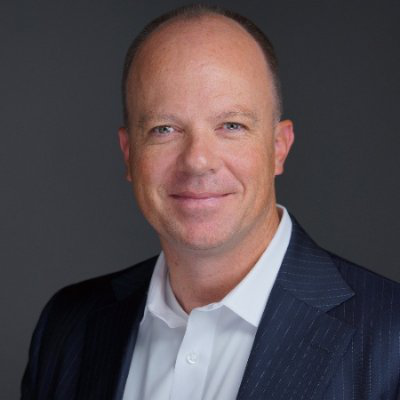 How do we drop the nostalgia and yearning for "what used to be" and embrace the changes from COVID-19 with positivity? Dr. James Anderson says it is vital to view every working day as a commitment to continuous improvement.
How do we drop the nostalgia and yearning for "what used to be" and embrace the changes from COVID-19 with positivity? Dr. James Anderson says it is vital to view every working day as a commitment to continuous improvement.